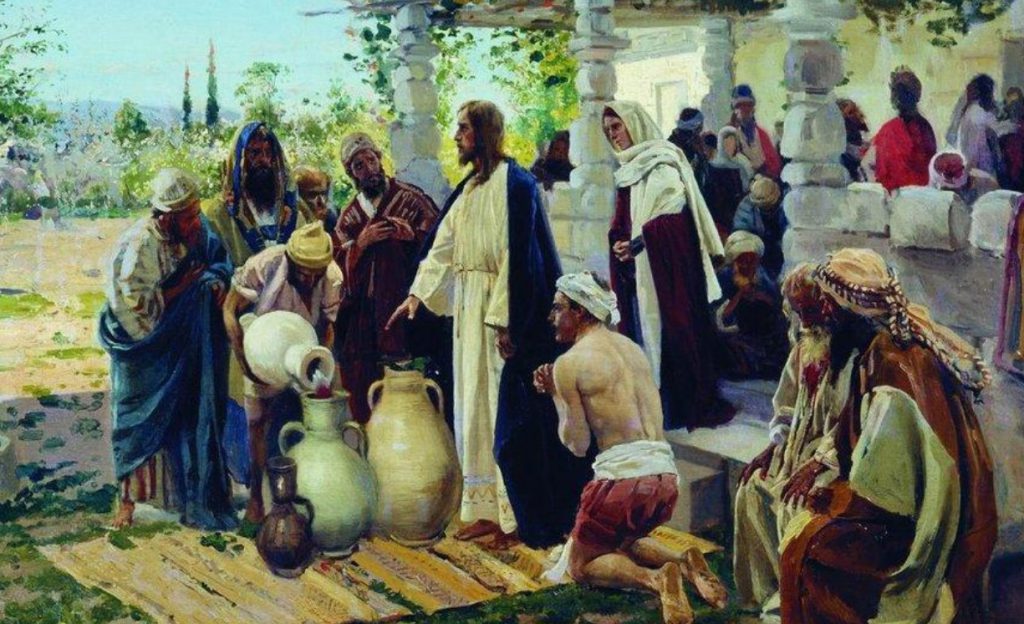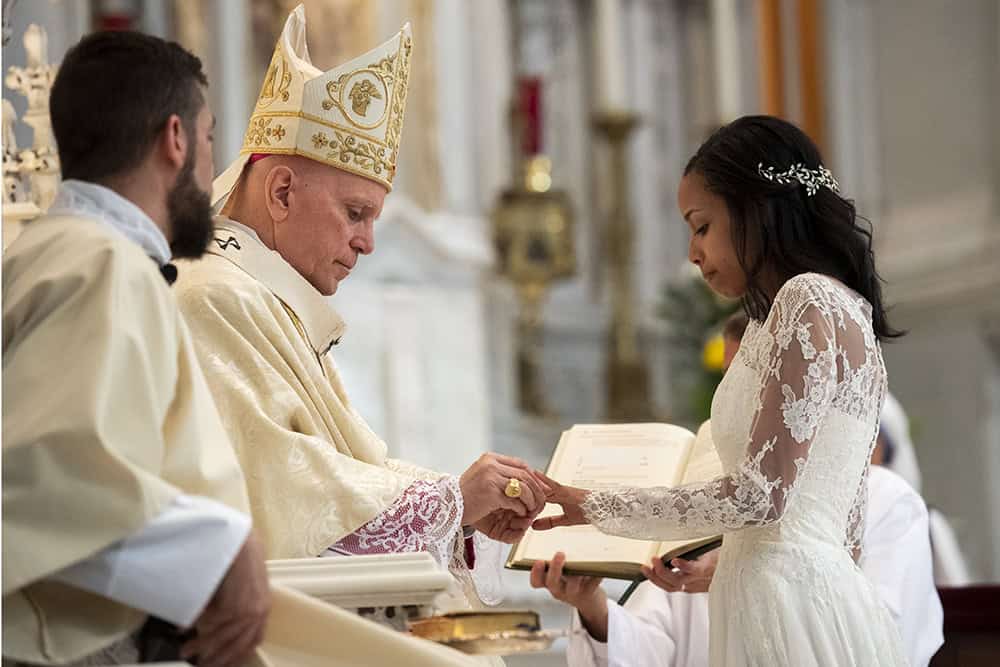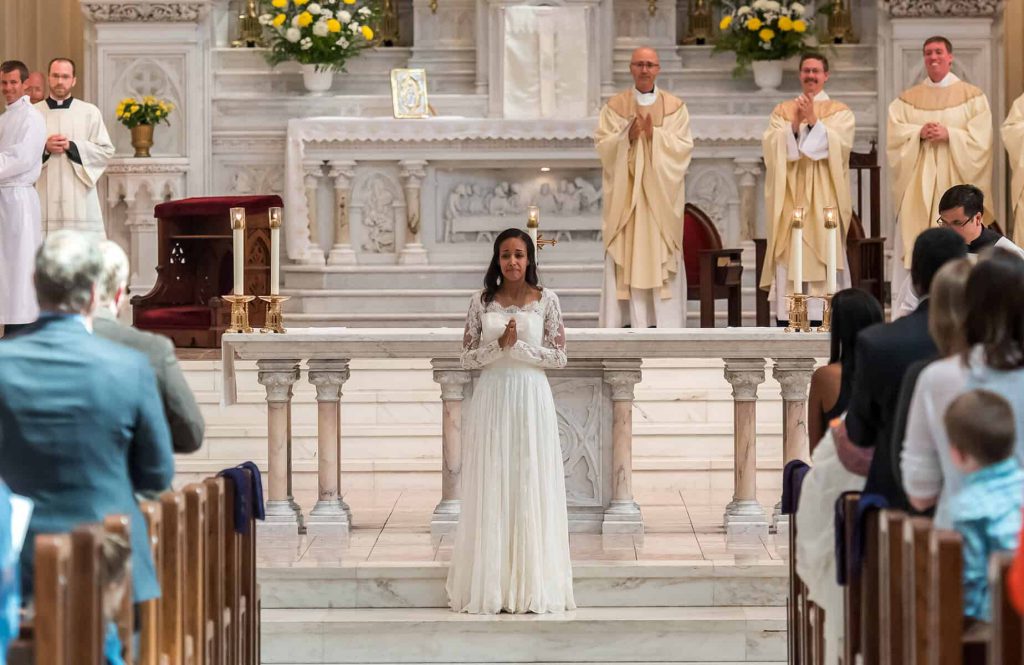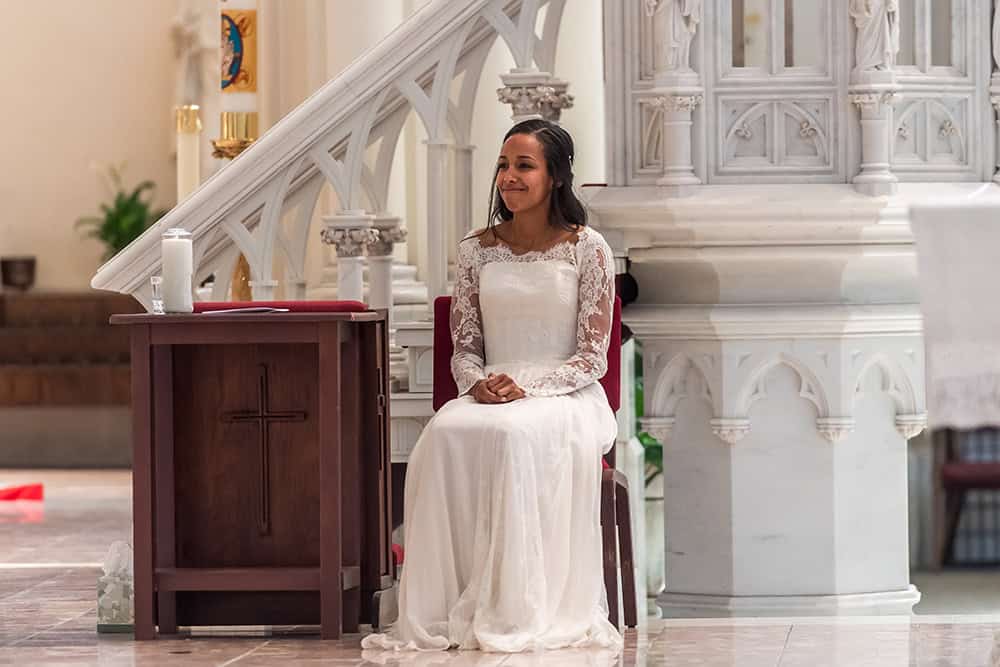Last May, some of us resonated with the seven distorted images of God. Steve Jobs thought God was detached because, in his mind, God didn’t help starving children in Nigeria. We’ve mentioned the man who said at his wife’s funeral that, because she died of cancer, he didn’t believe in God anymore; I think he looked at God in a transactional way: I go to Mass, I’m a good person, so God should give me good things.
We all have, in some way, a distorted image of God because we’re fallen: We’re separated from God, our sins push Him away, and we’ve been taught many falsehoods about Him. Let’s not think about other people’s distorted images but our own.
Dr. Bob Schuchts’ father left his family when Bob was 14, so, although he was successful in everything, he believed God was unreliable. Disney God is shown by my friend who broke God’s commands and said dismissively, ‘God understands.’ Dictator God is Christopher Hitchens’ view: that God commands things without concern for our good. My mom said that, when she became Catholic, she knew God was loving, but was overly fearful that if she sinned, He would be displeased and love her less—judgmental God. Finally, Hugh Hefner started Playboy specifically to overcome the religious limitations of his parents; he wanted freedom from God, Who is our competitor.
This Russian painting shows today’s Gospel:
The first fact at which to marvel is that Jesus does His initial miracle at a wedding. If you were God, what would be your first miracle? “If Jesus had wanted to establish his credentials as a teacher, the first thing he could have done was to preach the Sermon on the Mount. If he had wanted to emphasize his power over demons, then the first thing he might have done was to perform an exorcism… If Jesus had wanted… to reveal his power over death” He would have raised someone from the dead (Dr. Brant Pitre, Jesus the Bridegroom, 35). But, after His mother’s request, He chose a wedding because marriage is so important to Him. Many people say that the Bible is a religious text about God and His teachings. We say that the Bible is about marriage, a love story between God and humanity: It starts with marriage between Adam and Eve and ends with one.
So, in contrast to the seven distorted images of God, we typically refer to God as Father, but could also refer to Him as Bridegroom. In 2020, during my 30-day retreat, I had the blessing of meeting Senite Sahlezghi from Denver, who got married to Jesus six months later as a consecrated virgin. This photo shows her dying to the world to live for God alone:
This is her receiving her wedding ring from the bishop.
Here, everyone is congratulating her while she cries,
and this shows her as a happy spouse!
What’s instructive is the way Senite describes Jesus: He’s faithful to her, has always been gentle with her, and gives her a peace the world cannot give.
The second fact to pay attention to is the new identity of our Mother Mary: “On the third day there was a wedding in Cana of Galilee, and the mother of Jesus was there. Jesus and his disciples had also been invited to the wedding” (Jn 2:1-2). It’s interesting that Mary is mentioned before Jesus. One possible reason is: When Adam and Eve sinned against God, who was the first to disobey? Eve. Now, who is the first to obey Him perfectly? Mary.
“When the wine gave out, the mother of Jesus said to him, ‘They have no wine.’ [Notice that Mary takes the initiative in the right direction, whereas Eve took the initiative in the wrong direction.] And Jesus said to her, ‘Woman, what concern is that to you and to me? My hour has not yet come.’ [In no other document of the ancient Near East do we have evidence of a son calling his mother ‘woman.’ It’s not rude, just highly unusual. Jesus would never break the fourth commandment of honouring His father and mother, so there must be a reason. The answer is that Eve is referred to as ‘woman’ eleven times in Genesis, so Jesus is making His mother the new Eve, the mother of all who believe in Him.]
Notice also that, even after Mary brings to Jesus’ attention that the wedding has run out of wine, expecting Him to do something about it, He respectfully declines her, and yet her response is: “and His mother said to the servants, ‘Do whatever he tells you’” (2:3-5). Do we see the difference between her answer and the responses given by people who have a distorted image of God? Even when Jesus declines her, she trusts God, whereas most people, when God doesn’t give them what they want right away, don’t trust Him.
This brings us back to the nature of Jesus’ first miracle. If we were God, and could do one thing to improve the world, would we end hunger, disease, abortion, war, racism, improve the economy? But “changing the world is an inside-out job. When we look to change the world, too often we look outside ourselves. When God looks to change the world, He looks deep within us, driving straight to the heart of the matter: human behaviour. The world is the way it is today because of human beheaviour” (Matthew Kelly, The Four Signs of a Dynamic Catholic, 143). The United Nations has publicly said for decades that there’s enough food in the world for everyone; it just doesn’t get to everyone because of corruption, war, etc. Even if we were to end hunger by some miracle, people would eventually go hungry again because of human sin. Jesus gave our mother Mary a new identity during His first miracle, that she might become a mother to all who now believe in Him. And, at the end of today’s text, it says that His disciples believed in Him. All His miracles are designed so that we change: That we trust Him—that will be and lead to the greatest improvement in the world.
The third thing to pay attention to is the symbol of wine. When Mary says, ‘They have no wine,’ she’s not only pointing out that the wedding celebration has run out of wine, which is embarrassing for people in that culture, she’s alluding to an Old Testament passage: “No longer do they drink wine with singing… The city… is broken down… There is an outcry in the streets for lack of wine… the gladness of the earth is banished” (Isa 24:9-11). Here, the Jewish people lament God’s judgment and long for the wine of salvation. But, in the next chapter, God promises He’ll eventually save His people: “On this mountain the Lord… will make for all peoples a feast of rich food, a feast of well-aged wines… of well-aged wines strained clear… This is the Lord for whom we have waited; let us be glad and rejoice in his salvation.” (Isa 25:6,9).
So, when Jesus changes water into wine, the text says that there were six stone jars each holding two to three ‘measures,’ which is roughly 600 liters; for us that would be 800 bottles of wine, and, according to one wedding website, that serves 1,600 guests!
So, how would you complete the following phrase: God is _____? Yes, God is love, God is good. But some people complete the phrase saying, ‘God is generous’: “Creation is generous. Free will is generous. Life is generous. Love is generous. The generosity of God is awesome” (Kelly, 110). Changing water into so much wine is a sign of Jesus’ superabundant generosity. Therefore, let’s add the title ‘Generous’ to the correct images of God. Of course, this isn’t ATM God who gives us what we want when we want it. Because wine is a symbol of salvation, it’s not just about having fun at a wedding, but about being filled with perfect happiness.
Our lives are a trial and are designed to bring us to happiness especially on the inside. Yet, at the same time, hopefully we can start seeing the generosity of God and have the correct image of Him. Here’s an example from one couple who took Faith Studies in the past year:







